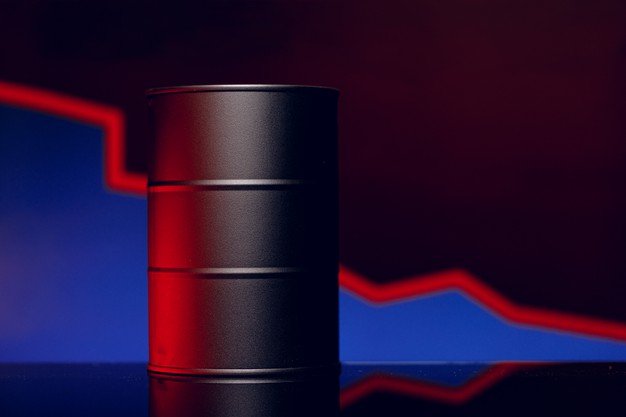Oil prices were mixed on Friday as US inventories plummet and global supply uncertainty fueled by the OPEC+ stalemate is on track for weekly losses.
Brent crude futures were down 3 cents to $74.09 a barrel as of 0442 GMT. West Texas Intermediate (WTI) futures rose 6 cents, or 0.1%, to $73.00 a barrel.
Prices on both sides of the Atlantic were headed for a weekly loss of about 3%, driven by the collapse of production talks between the Organization of the Petroleum Exporting Countries and its allies, including Russia.
Markets are worried due to the uncertainty regarding the post-August OPEC+ production.
The decline in US crude stockpiles is a positive factor, but it’s troubling to think that this is temporary given the resurgence of the COVID-19 pandemic in the US and elsewhere. The new COVID-19 quarantines are likely to slow the recovery in demand for air travel and jet fuels.
Japan has declared a state of emergency in Tokyo, which is home to the resurgent coronavirus in the country. Banned spectators at the Olympics, which were scheduled to begin on July 23.
Cases of COVID-19 in the United States are increasing among people who are almost completely unvaccinated.
Crude oil and gasoline stocks are falling as US fuel demand rises. The U.S. Energy Information Administration on Thursday signaled growing strength in the economy, noting that U.S. crude oil and gasoline stockpiles fell and gasoline demand hit its highest level since 2019.
Crude oil inventories decreased by 6.9 million barrels in the week of July 2 to 445.5 million barrels, the lowest since February 2020 and above the estimated 4 million barrels decrease. Gasoline inventories fell 6.1 million barrels, beating expectations for a decline of 2.2 million barrels.
Despite oil prices rising to $75 a barrel, US shale firms are keeping up with their commitments to keep production stable, unlike previous recovery cycles.
U.S. production peaked near 13 million barrels per day in late 2019 and then fell amid COVID-19. Production rose to around 11 million in mid-2020, but has since stagnated.
Although there has not been a large increase in US shale gas production, it does not appear to have been greatly affected by the OPEC+ debate.
Oil price gains were limited by concerns that members of the OPEC+ group could back out of production limits they had followed during the pandemic as talks between major oil producers Saudi Arabia and the United Arab Emirates collapsed.
Two Gulf OPEC allies, Saudi Arabia and the United Arab Emirates, are having a conflict that could lead to more oil supplies in the market. Investors are worried that the OPEC+ impasse could boost global crude oil supplies.
OPEC+ sources said on Wednesday that Russia is trying to mediate to help reach an agreement to increase production. The White House said on Tuesday that the United States is holding high-level talks with officials in Saudi Arabia and the UAE.

